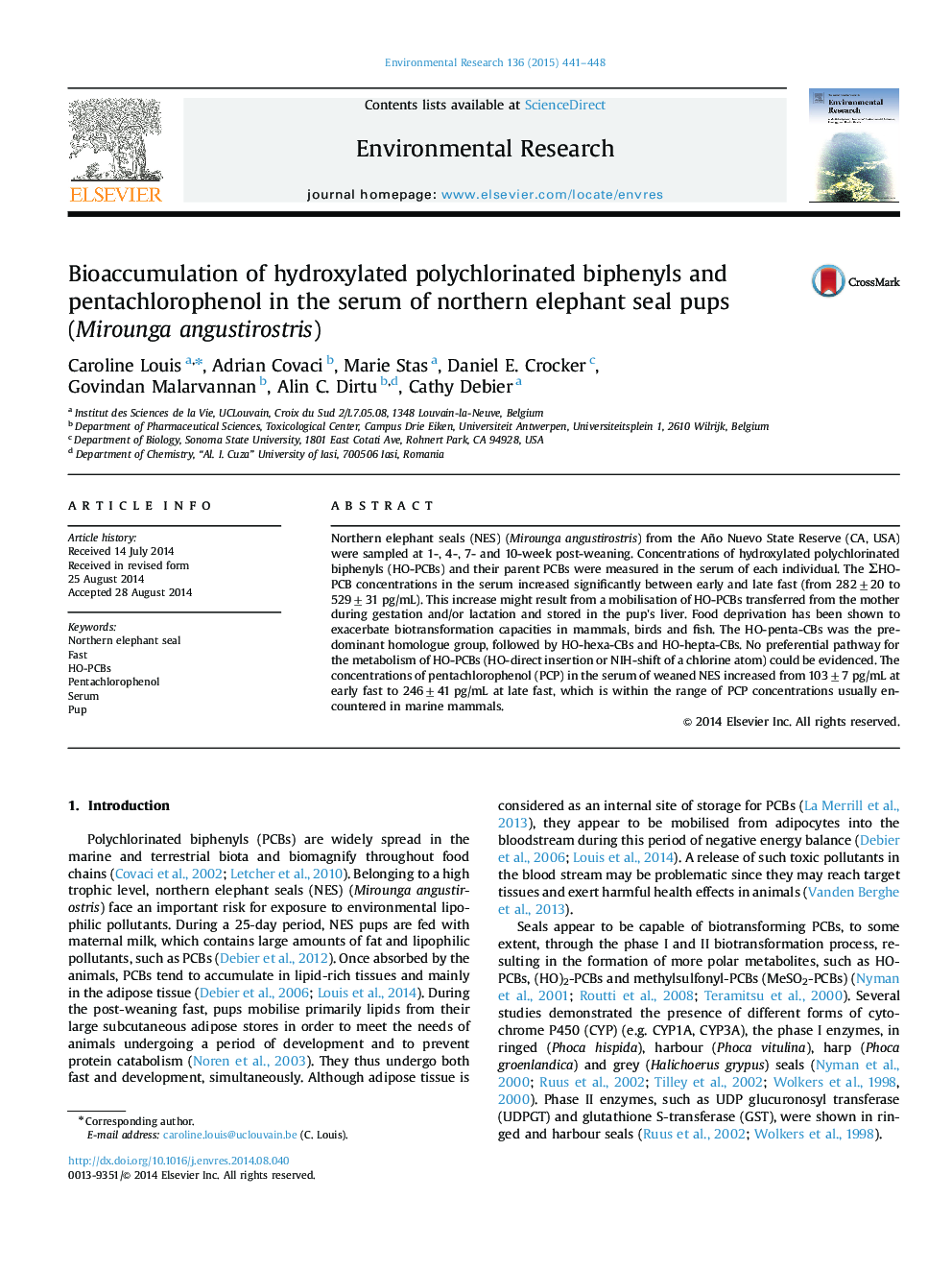| Article ID | Journal | Published Year | Pages | File Type |
|---|---|---|---|---|
| 6352449 | Environmental Research | 2015 | 8 Pages |
Abstract
Northern elephant seals (NES) (Mirounga angustirostris) from the Año Nuevo State Reserve (CA, USA) were sampled at 1-, 4-, 7- and 10-week post-weaning. Concentrations of hydroxylated polychlorinated biphenyls (HO-PCBs) and their parent PCBs were measured in the serum of each individual. The ΣHO-PCB concentrations in the serum increased significantly between early and late fast (from 282±20 to 529±31 pg/mL). This increase might result from a mobilisation of HO-PCBs transferred from the mother during gestation and/or lactation and stored in the pup's liver. Food deprivation has been shown to exacerbate biotransformation capacities in mammals, birds and fish. The HO-penta-CBs was the predominant homologue group, followed by HO-hexa-CBs and HO-hepta-CBs. No preferential pathway for the metabolism of HO-PCBs (HO-direct insertion or NIH-shift of a chlorine atom) could be evidenced. The concentrations of pentachlorophenol (PCP) in the serum of weaned NES increased from 103±7 pg/mL at early fast to 246±41 pg/mL at late fast, which is within the range of PCP concentrations usually encountered in marine mammals.
Related Topics
Life Sciences
Environmental Science
Health, Toxicology and Mutagenesis
Authors
Caroline Louis, Adrian Covaci, Marie Stas, Daniel E. Crocker, Govindan Malarvannan, Alin C. Dirtu, Cathy Debier,
